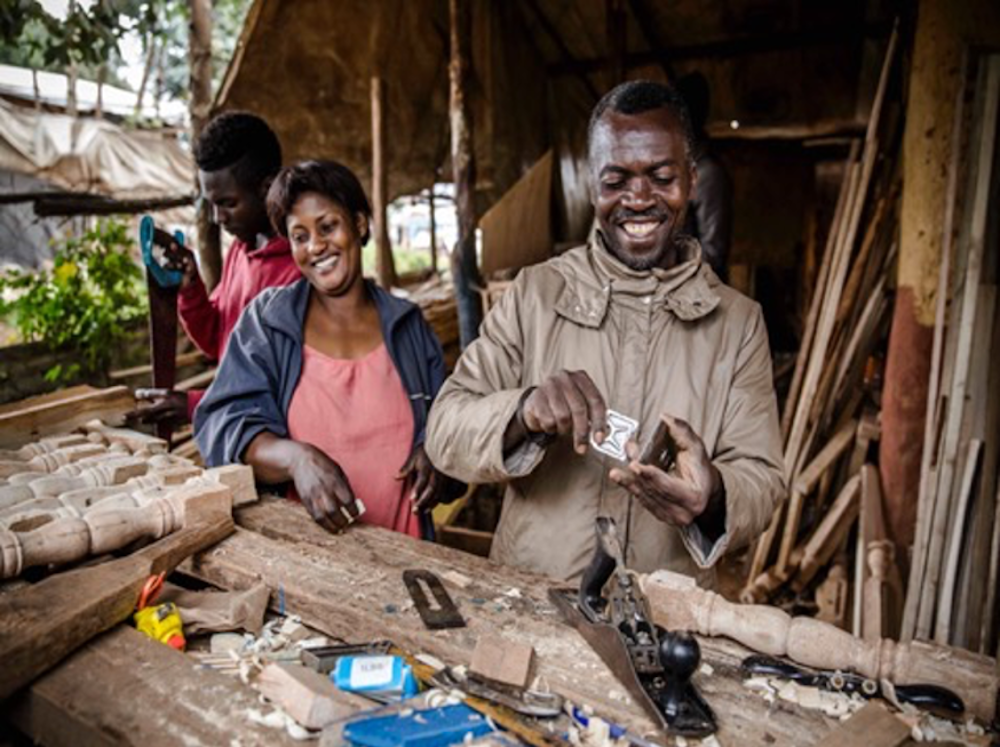- Refugee entrepreneurs may not be eligible for government-backed business supports.
- The Refugee Investment Network has spent the last year connecting these entrepreneurs with capital, pointing to the resiliency required by resettlement and launching a business.
- As 1% of the world’s population, refugees are a largely untapped consumer market and founder pool.
The Refugee Investment Network launched in 2019 to connect refugee-led and refugee-supporting ventures with capital. The impact investing and blended finance collaborative sees a link between the resiliency required to start a business and the resiliency required to flee a lifelong home and resettle in a new country — which more than 70 million refugees and other displaced people around the world, about 1% of the entire global population, have done.
One year later, and in the thick of an unprecedented global pandemic, refugees are among the entrepreneurs struggling to access support for their enterprises, in large part because their citizenship status may render them ineligible for support from national relief packages.
“There is a disproportionate impact on these entrepreneurs who are people of color, half of whom are women, and often operating in markets where they do not have access to the same formal social safety nets that ordinary citizens would,” RIN founder and managing director John Kluge said in a phone interview with Karma.
RIN conducted a survey of about 1,000 entrepreneurs in its network to identify needs. The big one: “Everyone is facing a cash flow crunch,” said Kluge.
Access to capital, including access to basic financial tools, is a challenge for refugee entrepreneurs that predates the pandemic. An April 2020 report by PayPal and Village Capital found that financial inclusion is a significant barrier to refugee entrepreneurship and overall integration in Europe. The EU does not require work visas to start a business — a fact that can make entrepreneurship a more attractive option for displaced people than traditional employment, particularly since resettled refugees tend to be young — but regulations intended to address the ability of displaced people to open accounts have been unevenly applied. The $38 billion fintech market is well-positioned to offer solutions.
“The majority of our work is really about long-term pathways for people to become active participants and contributors in their communities and in the formal economies of the places that host them,” said Kluge. “The question then, in the context of a pandemic emergency, is how can we be responsive while still honoring the focus of our work, which is really about these durable solutions.”
The current perfect storm is being met with a familiar tool: grants. RIN and a group of partner organizations are launching RECOVR, a donor-advised fund that deploys emergency grants to cash-strapped refugee entrepreneurs through RIN’s network as well as four accelerator programs: the International Rescue Committee’s Center for Economic Opportunity, Five One Labs, the Syrian expatriate-led Jusoor and the African Entrepreneur Collective.
“CDFIs are usually our primary partners, but a lending instrument seemed like an over-burdensome one to use — the people were at greater financial risk even if the loan was at concessionary rate,” Kluge explained, echoing a finding in the PayPal-VilCap report. “This is a particular time-bound application where there’s a requirement for grant-based support for entrepreneurs.”
The immediate needs of refugee entrepreneurs are diverse, but ultimately boil down to cash flow. A food delivery service specializing in Burundian fish dishes, launched by a refugee from Burundi now based in Rwanda, had its supply chain upended by the pandemic and will need a grant to fully relaunch. Martha EDU, a Jordan-based startup for sign language education in Arabic and English, is transitioning its newly-remote outreach operations to social media platforms accessible to both the deaf and those with limited internet access.
RECOVR is targeting an initial $1 million raise through a combination of individual donations via the crowdfunding platform Grapevine as well as commitments from institutional investors.
RECOVR’s grants are deployed through RIN and four partner organizations, including the International Rescue Committee’s Center for Economic Opportunity. An earlier version of this piece incorrectly stated that the emergency grants from RECOVR are deployed through the IRC’s local resettlement programs.






















